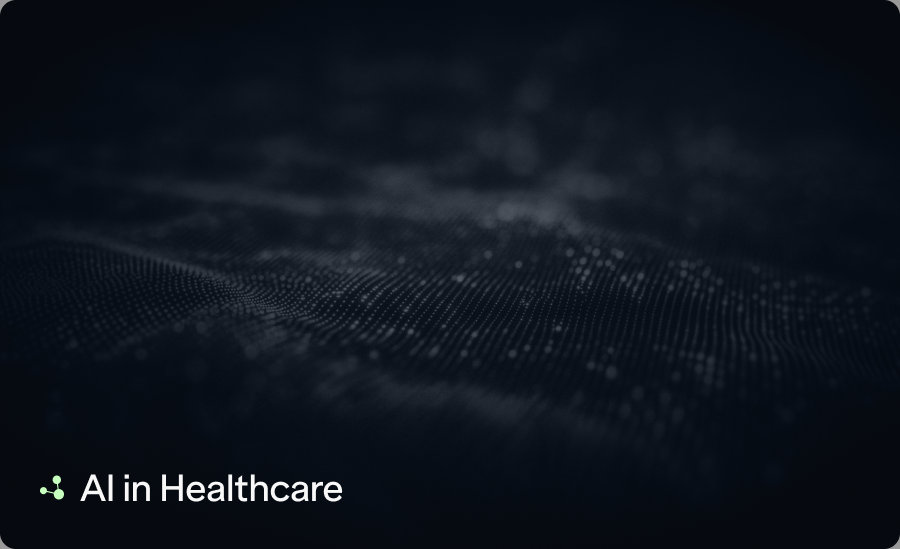Tres razones por las que se equivocó acerca de la precisión de los controles de estado basados en cámaras
Describimos tres puntos de vista populares sobre la precisión de los controles de estado remotos que creemos que están desactualizados.
Los métodos de control de salud basados en cámaras están atrayendo un interés cada vez mayor en los mercados de la tecnología y la atención médica.
Como preparación para la certificación de Shen AI como dispositivo médico, realizamos estudios de validación preclínica que, al mismo tiempo, refutan los mitos más populares sobre la precisión de la monitorización de la salud con cámaras.
Describimos tres puntos de vista populares sobre la precisión de los controles de estado remotos que creemos que están desactualizados.
1. Para realizar una medición precisa, necesita un dispositivo especializado: error.
Esta es una opinión popular, aunque resulta que no es cierta. El estudio de validación preclínica de Shen.AI Vital fue realizado por investigadores de la Universidad Médica de Wroclaw, la universidad líder en Polonia en el tema clínico y sanitario.
El estudio se centró en la precisión y exactitud de las mediciones de la frecuencia cardíaca, la variabilidad de la frecuencia cardíaca y la frecuencia respiratoria utilizando la tecnología Shen AI Vitals. Durante este estudio, los científicos usaron un smartphone normal. Esta es una información importante en el contexto de la disponibilidad posterior para los usuarios estándar.
Smartphone, tableta, portátil: estos dispositivos son suficientes para realizar una medición precisa de las funciones vitales utilizando la tecnología Shen AI.
2. El estudio de control de estado remoto se realiza solo internamente: a veces, pero no en este caso.
Al analizar dichos estudios, debe observar la metodología de la investigación y la unidad que la lleva a cabo.
La Universidad Médica de Wroclaw coopera con Shen AI en la investigación de la tecnología Shen AI. Para ello, Shen AI proporciona la información necesaria y proporciona soluciones tecnológicas para realizar mediciones. Sin embargo, Shen AI no influye de ninguna manera en el análisis de estos datos ni en su posterior interpretación. Todas las pruebas realizadas son totalmente independientes y la interpretación de los resultados es responsabilidad exclusiva de los científicos de la Universidad de Medicina de Wroclaw.
3. El control de estado basado en cámaras es menos preciso que los relojes inteligentes: error. Es comparable.
Shen.AI Vital mide actualmente la frecuencia cardíaca, la variabilidad de la frecuencia cardíaca y la frecuencia respiratoria, de forma similar a los relojes inteligentes. La tecnología creada por el equipo de MX Labs se está desarrollando para medir otros parámetros vitales, como presión sanguínea y índice de estrés en el futuro. El estreno de las nuevas funciones tendrá lugar en 2023. Ya sabemos que en cuanto al rango de medidas, Shen.AI tendrá un rango más amplio que los relojes inteligentes normales.
Pero, ¿cómo se compara la precisión de Shen.AI Vital con la de los relojes inteligentes?
Al comparar los datos de precisión de Shen.AI y los relojes inteligentes, tuvimos en cuenta la métrica principal: la frecuencia cardíaca, según los informes de investigación disponibles.
De acuerdo con el estudio en los relojes inteligentes, la precisión de la medición de la frecuencia cardíaca es similar a la de la tecnología Shen AI Vital. La precisión de la medición de la frecuencia cardíaca con el reloj inteligente varía entre un 100% y un 94% según el modelo (durante la medición estándar). El Apple Watch mostró la mayor precisión y el Galaxy fue comparable. La IA de Shen mostró una precisión del 99,5% al medir la frecuencia cardíaca estándar.
En resumen, un método de control de salud basado en una cámara, como Shen AI Vital, es tan preciso como un reloj inteligente que se lleva directamente sobre la piel. Demuestra el potencial que tienen los métodos sin contacto en el desarrollo de la atención médica.
¿Eres curioso? ¿Prioriza la precisión de las mediciones de las nuevas tecnologías? Somos lo mismo.
Consulte el informe de validación preclínica del estudio sobre la precisión de Shen.AI.
Acerca de los autores del estudio
Dr. Bartłomiej Jerzy Paleczny

Departamento de Fisiología, Departamento de Fisiología y Fisiopatología
Universidad de Medicina de Wroclaw
El Dr. Bartłomiej Jerzy Paleczny se centra principalmente en los mecanismos de regulación de los reflejos, ejercidos por el sistema nervioso autónomo, en los sistemas cardiovascular y respiratorio de los seres humanos, con especial énfasis en los reflejos de los quimiorreceptores y barorreceptores arteriales.

Tymoteusz Okupnik, MSc
Departamento de Fisiología, Departamento de Fisiología y Fisiopatología
Universidad de Medicina de Wroclaw
La actividad de Tymoteusz Okupnik se centra en el estudio de la fisiología del esfuerzo físico y su impacto en los mecanismos reflejos del sistema nervioso autónomo, principalmente en los sistemas cardiovascular y respiratorio. Desde 2020, Tymoteusz Okupnik es miembro de la Sociedad Polaca de Fisiología (PPS).
More blog posts
Sagittis et eu at elementum, quis in. Proin praesent volutpat egestas sociis sit lorem nunc nunc sit.

Brindamos un monitoreo del estado de la IA verdaderamente confiable. La última actualización del producto de inteligencia artificial de Shen
El SDK 3.0 ya está disponible. Esta es la versión más grande que hemos lanzado. No por la cantidad de funciones, sino por lo que significa para ti y tus usuarios.

FHIR & Shen AI: Unlocking scalable AI health monitoring through modern interoperability
Shen AI delivers the what: accurate, camera-based vital-sign measurements. FHIR provides the how: a standardized framework for storing and exchanging health data across systems.

Guía 2026 de la FDA: Qué significan las nuevas exenciones de bienestar para el monitoreo de los signos vitales con cámaras
La claridad normativa es tan vital como la capacidad técnica. Consulte las directrices de la FDA para 2026 sobre el bienestar general y descubra cómo los equipos de salud digitales pueden aprovechar la monitorización de los signos vitales mediante cámaras para mejorar el estilo de vida y la salud preventiva sin entrar en un territorio médico regulado.

